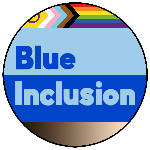Definitions
In Brief
On occasion discussion devolves into questioning the use of a term, a tangent that can loose sight of the original topic. Though often unavoidable, even necessary perhaps the definitions below will keep us on topic.
This page uses the Oxford English Dictionary as a standard so we’re talking apples to apples. Additional references are sited when used.
Further
In my initial attempt to define hypothesis and theory it became obvious that this page isn’t going to be as easy as thought, at least in going beyond the Oxford definitions. There are often multiple definitions of a word, common colloquial usages, and sometimes a drift of meaning over time. Typically, one would choose the usage that best supports the point you’re trying to make but this may be different than the one the person you are speaking with has in mind.
Be aware of such differences and try to get on the same footing in your own conversations. At a minimum ask your interlocutor what their definiton of a term is and use that for your discussion.
Belief
- An acceptance that a statement is true or that something exists.
- Something one accepts as true or real; a firmly held opinion or conviction.
- A religious conviction.
- Trust, faith, or confidence in someone or something. (belief in)
Bias
- Prejudice in favor of or against one thing, person, or group compared with another, usually in a way considered to be unfair.
- A concentration on or interest in one particular area or subject.
- [Statistics] A systematic distortion of a statistical result due to a factor not allowed for in its derivation.
Cognitive Dissonance
[Psychology] The state of having inconsistent thoughts, beliefs, or attitudes, especially as relating to behavioral decisions and attitude change.
Confirmation Bias
The tendency to interpret new evidence as confirmation of one’s existing beliefs or theories.
Dissonance
- A tension or clash resulting from the combination of two disharmonious or unsuitable elements.
- [Music] Lack of harmony among musical notes.
Doubt
Noun
A feeling of uncertainty or lack of conviction.
Verb
- Feel uncertain about.
- Question the truth or fact of (something).
- Disbelieve (a person or their word).
- Feel uncertain, especially about one’s religious beliefs.
- [archaic] Fear; be afraid of.
Fact
- A thing that is indisputably the case.
- A piece of information used as evidence or as part of a report or news article.
- [chiefly Law:] The truth about events as opposed to interpretation.
Faith
- Complete trust or confidence in someone or something.
- Strong belief in God or in the doctrines of a religion, based on spiritual apprehension rather than proof.
- A system of religious belief.
- A strongly held belief or theory.
Fallacy
- A mistaken belief, especially one based on unsound argument.
- [Logic] A failure in reasoning that renders an argument invalid.
- Faulty reasoning; misleading or unsound argument.
False
- Not according with truth or fact; incorrect.
- Not according with rules or law.
- Appearing to be the thing denoted; deliberately made or meant to deceive.
- Artificial.
- Feigned.
- Illusory; not actually so.
- [ATTRIBUTIVE] Used in names of plants, animals, and gems that superficially resemble the thing properly so called, e.g., false oat, false killer whale.
- Treacherous; unfaithful.
Falsehood
- The state of being untrue.
- A lie.
Feel
(Verb)
- Experience (an emotion or sensation):
- Consider oneself to be in a particular state or exhibiting particular qualities.
- Be emotionally affected by.
- Have a belief or impression, especially without an identifiable reason.
- Hold an opinion.
(Noun)
The impression given by something. (a modern feel)
Feeling
- An emotional state or reaction.
- (feelings) The emotional side of someone’s character; emotional responses or tendencies to respond.
- Strong emotion. (said with feeling)
- A belief, especially a vague or irrational one.
- An opinion, typically one shared by several people.
- (feeling for) A sensitivity to or intuitive understanding of.
Hypothesis
- A supposition or proposed explanation made on the basis of limited evidence as a starting point for further investigation.
- [Philosophy:] A proposition made as a basis for reasoning, without any assumption of its truth.
Ideology
- A system of ideas and ideals, especially one that forms the basis of economic or political theory and policy.
- The ideas and manner of thinking characteristic of a group, social class, or individual.
- [ARCHAIC] Visionary speculation, especially of an unrealistic or idealistic nature.
- [ARCHAIC] The science of ideas; the study of their origin and nature.
Ignorance
Lack of information or knowledge.
Ignorant
Lacking knowledge or awareness about something, in general or in particular; uneducated or unsophisticated.
Intelligence
- The ability to acquire and apply knowledge and skills.
- A person or being with the ability to acquire and apply knowledge.
Irrational
- Not logical or reasonable.
- Not endowed with the power of reason.
Know
- Be aware of through observation, inquiry, or information.
- Be absolutely certain or sure about something.
- Have a good command of. (a subject or language)
- Recognize (someone or something)
- Be familiar or acquainted with. (something)
- Have personal experience of. (an emotion or situation)
Knowledge
- Facts, information, and skills acquired by a person through experience or education; the theoretical or practical understanding of a subject.
- What is known in a particular field or in total; facts and information.
- [Philosophy] True, justified belief; certain understanding, as opposed to opinion.
- Awareness or familiarity gained by experience of a fact or situation.
Logic
- Reasoning conducted or assessed according to strict principles of validity.
- A particular system or codification of the principles of proof and inference.
- The systematic use of symbolic and mathematical techniques to determine the forms of valid deductive argument.
- The quality of being justifiable by reason.
Objective
- (Of a person or their judgment) not influenced by personal feelings or opinions in considering and representing facts.
- Not dependent on the mind for existence; actual.
Opinion
- A view or judgment formed about something, not necessarily based on fact or knowledge.
- The beliefs or views of a large number or majority of people about a particular thing.
- A formal statement of advice by an expert on a professional matter.
- [Law] A formal statement of reasons for a judgment given.
- An estimation of the quality or worth of someone or something. (opinion of)
Philosophy
- The study of the fundamental nature of knowledge, reality, and existence, especially when considered as an academic discipline.
- A particular system of philosophical thought. (Plato’s philosophy)
- The study of the theoretical basis of a particular branch of knowledge or experience. (the philosophy of science)
- A theory or attitude held by a person or organization that acts as a guiding principle for behavior.
Preconceived
(Of an idea or opinion) formed before having the evidence for its truth or usefulness.
Rational
- Based on or in accordance with reason or logic.
- (Of a person) able to think clearly, sensibly, and logically.
- Endowed with the capacity to reason.
Reality
- The world or the state of things as they actually exist, as opposed to an idealistic or notional idea of them.
- A thing that is actually experienced or seen, especially when this is grim or problematic.
- A thing that exists in fact, having previously only existed in one’s mind. (becoming a reality)
- The quality of being lifelike or resembling an original.
- The state or quality of having existence or substance.
- [Philosophy] Existence that is absolute, self-sufficient, or objective, and not subject to human decisions or conventions.
Reason
(Noun)
- The power of the mind to think, understand, and form judgments by a process of logic.
- What is right, practical, or possible; common sense. (within reason)
(Verb)
- Think, understand, and form judgments by a process of logic.
- Find an answer to a problem by considering various possible solutions.
- Persuade (someone) with rational argument.
Religion
- The belief in and worship of a superhuman controlling power, especially a personal God or gods.
- A particular system of faith and worship.
- A pursuit or interest to which someone ascribes supreme importance.
Subjective
- Based on or influenced by personal feelings, tastes, or opinions.
- Dependent on the mind or on an individual’s perception for its existence.
Theory
- A supposition or a system of ideas intended to explain something, especially one based on general principles independent of the thing to be explained. (the theory of evolution)
- A set of principles on which the practice of an activity is based. (music theory)
- An idea used to account for a situation or justify a course of action. (my theory is that…)
- [Mathematics:] A collection of propositions to illustrate the principles of a subject.
True
- In accordance with fact or reality.
- Rightly or strictly so called; genuine.
- Real or actual.
- Accurate or exact.
Truth
- The quality or state of being true.
- That which is true or in accordance with fact or reality.
- A fact or belief that is accepted as true.
Worldview
A particular philosophy of life or conception of the world.
Store has not opened yet. Please watch this space.
Blue Inclusion Categories
- Progressive Issues
- Atheism
- LGBTQIA+
- Vote Blue
- Science
- Just for Fun


